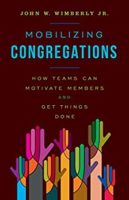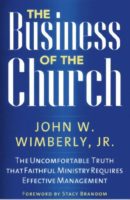Pastor Jones arrives at St. John’s Methodist Church and, shortly thereafter, the congregation begins to grow. Father James arrives at a healthy congregation and, over the next decade, the congregation experiences a steady decline in vitality. Pastors, priests, rabbis and other clergy matter. Their performance is a key to the performance and healthy of a congregation; not the only key, but a powerful key.
However, such a focus on the centrality of a pastor has been politically incorrect in religious communities for too long. We always seem to be looking at factors other than the clergy when we analyze why a congregation is healthy or not. It is as if we don’t want to acknowledge the importance of clergy. Why?
- Knowing that congregations are complex systems, we are afraid to blame or praise on one individual for congregational trends in vitality. The best pastor in the world may not be able to lead a particularly dysfunctional congregation to a healthy future. Too many clergy have been unfairly scapegoated or given unwarranted praise for the failure or success of a congregation.
- Some denominations have theologies elevating the role of the laity. For example, the Presbyterian Church (U.S.A.) no longer officially uses language that refers to pastors or clergy. There are two types of elders: teaching (clergy) and ruling (lay). As a result of their concern about highlighting the role of pastors, these denominations are reluctant to engage in what they consider “clergy-centric” analysis of a congregation’s problems and possibilities.
- It is difficult for congregational members to hold clergy accountable. Their pastor is not only an organizational leader; she is their spiritual adviser, pastoral counselor, biblical teacher and community leader. Assigning blame to a beloved clergyperson for a congregation’s lack of vitality simply doesn’t seem right. It feels like ingratitude given the way the pastor has been present to members in times of need.
- Some of us who are clergy downplay the importance of clergy leadership because we don’t want to get blamed if things don’t improve in the life of a congregation. We are willing to be chaplains, caring lovingly for our members. However, we do not want to be leaders who rise or, most importantly, fall in relation to the health of the congregation.
- It is sometimes easier to explain growth/decline by citing demographic changes rather than clergy performance. For example, some small towns in the U.S. are literally disappearing as young people abandon them. Are the pastors in those towns the reason the congregations are declining? Or, conversely, some pastors get a reputation as “church builders” when, in fact, they started a new church in exactly the right place and time as a community exploded with growth.
- Some seminaries teach pastors to be “enablers” or “empowerment agents” of lay people rather than high-profile leaders themselves.
All these reasons for not acknowledging the central role of a pastor in the life of a congregation have strong positives as well as clear negatives.
As someone who was a pastor for forty years, I certainly understand the dynamics at play in evaluating a pastor’s performance. At times, I was unfairly blamed, as though something bad that happened was solely the result of my actions. At other times I was given undeserved credit for things that were not my doing. Despite those reactions to my pastoral actions, I never questioned the centrality of my role. Yes, lay people are crucially important. But if I didn’t do my job, it made little difference if they did their job. As their pastor, I could personally mess up the best-laid plans of my elders and members.
The tendency to downplay the significance of key leadership roles is not a problem in the church alone. Increasingly, I hear people say, “It doesn’t really matter who is elected President. They all do the same thing. They are all controlled by the same forces.” Really. Do these people truly think that the U.S. would be the same today if John McCain or Mitt Romney had been elected President instead of Barack Obama? Most reasonable conservatives, moderates and progressives understand that the country would be a far different place had Obama lost to one of the other two candidates. Depending on one’s political views, the country would be far better or worse off.
Leadership matters. Clergy matter because they are supposed to be leaders in the congregations they serve. Henry Ford is reputed to have said (but probably didn’t), “If I had asked people what they wanted, they would have told me a faster horse.” Those words are true regardless of whether or not he said them. Many people want an improved version of what they have rather than something dramatically different and astoundingly better. Outstanding leaders help us move beyond what we know to what is possible. As Rosalyn Carter put it, “A leader takes people where they want to go. A great leader takes people where they don’t necessarily want to go, but ought to be.”
Clergy matter because congregations need visionary leadership to help them accomplish their mission. With inspired, inspiring clergy leadership in place, the chances of a congregation being an effective, faithful servant community increase exponentially. I’m not sure, exactly, how we bring the importance of clergy leadership back into the spotlight. I simply know that it needs to be there.
John Wimberly is an experienced pastor and consultant. As a consultant, he has worked with congregations and judicatories on strategic planning, staff designs for the 21st century, and congregational growth as well as financial and administrative management. He has MBA, MDiv, and PhD (theology) degrees. His books focus on effective management and leadership. John believes congregations can have a bright future!




